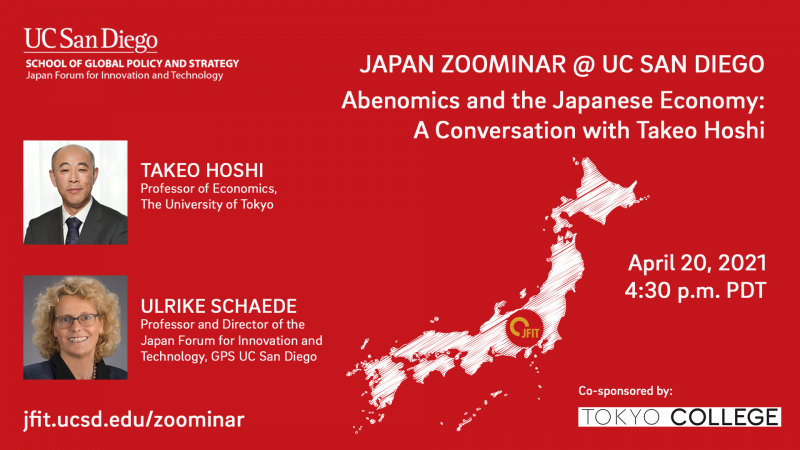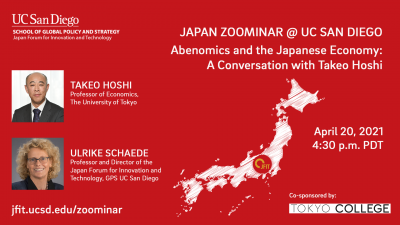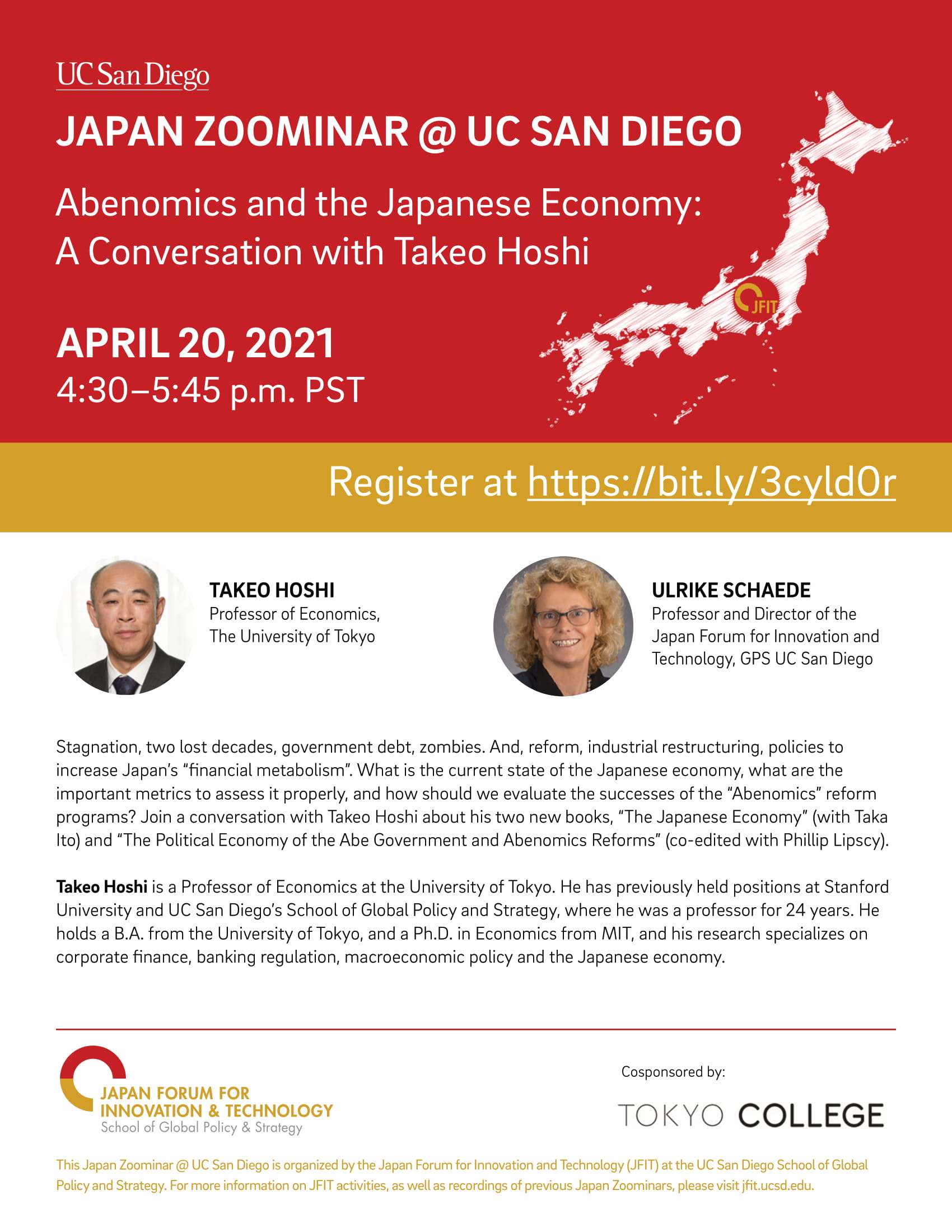Abenomics and the Japanese Economy: A Conversation with Takeo Hoshi

Watch the recording of Webinar:
| Date(s) | Wednesday, 21 April 2021, 8:30am- (JST) / Tuesday, 20 April 2021, 4:30pm-(PST) |
|---|---|
| Venue |
Zoom Webinar Register➤https://ucsd.zoom.us/webinar/register/WN_58Has4MrR8inV_o6pHlA9A |
| Registration | Pre-registration required |
| Language | English |
| Abstract |
Stagnation, two lost decades, government debt, zombies. And, reform, industrial restructuring, policies to increase Japan’s “financial metabolism”. What is the current state of the Japanese economy, what are the important metrics to assess it properly, and how should we evaluate the successes of the “Abenomics” reform programs? Join a conversation with Takeo Hoshi about his two new books, “The Japanese Economy” (with Taka Ito) and “The Political Economy of the Abe Government and Abenomics Reforms” (co-edited with Phillip Lipscy).
|
| Program |
Speakers: |
| Speaker Profile |
Takeo Hoshi is a Professor of Economics at the University of Tokyo. He has previously held positions at Stanford University and UC San Diego’s School of Global Policy and Strategy, where he was a professor for 24 years. He holds a B.A. from the University of Tokyo, and a Ph.D. in Economics from MIT, and his research specializes on corporate finance, banking regulation, macroeconomic policy and the Japanese economy. Ulrike Schaede is Professor of Japanese Business at GPS, UC San Diego, and the Director of JFIT. Her research focuses on Japan’s changing corporate strategies, including business culture, change management, and business organization. Her 2020 book “The Business Reinvention of Japan” analyzes how Japanese companies are responding to the rise of China and the changing global competition. |
| Organized by | The Japan Forum for Innovation and Technology (JFIT) at the UC San Diego School of Global Policy and Strategy / Tokyo College, The University of Tokyo |

















